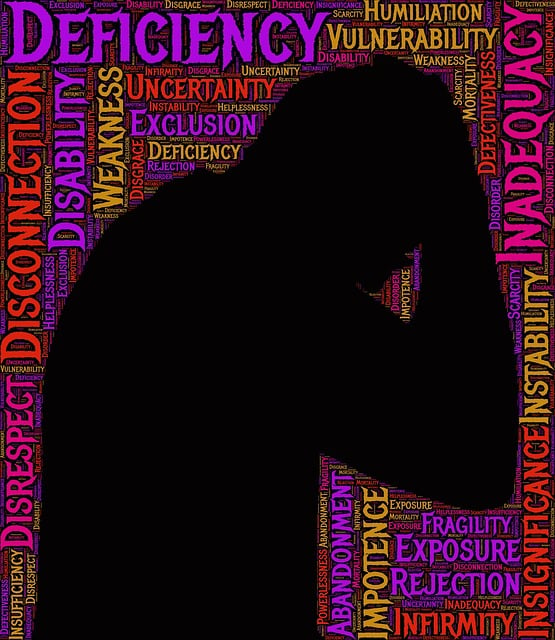Adolescent therapy focusing on codependency requires mental health professionals to navigate complex family and peer dynamics. By promoting coping skills development and resilience, therapists create safe spaces that empower teens with enhanced self-awareness. Treating codependency involves identifying and addressing therapists' own emotional needs, implementing comprehensive risk assessment strategies, and engaging in regular self-awareness exercises to prevent burnout. Integrating coping skill development, peer support networks, and reflection sessions enhances both professional well-being and the quality of care for adolescent teens struggling with codependency.
Mental health professionals face unique challenges when working with adolescent teens, including identifying and mitigating risks within their practice. This article explores critical aspects of risk assessment, focusing on understanding the specific dangers in adolescent therapy and recognizing codependency’s impact. We delve into comprehensive strategies for assessing and managing these risks, emphasizing best practices to ensure safe and effective treatment. By addressing codependency and implementing robust risk management, professionals can enhance their practice and better support young clients.
- Understanding the Unique Risks in Adolescent Therapy
- Identifying Codependency and Its Impact on Practice
- Implementing Comprehensive Risk Assessment Strategies
- Mitigating Risks: Best Practices for Mental Health Professionals
Understanding the Unique Risks in Adolescent Therapy

Adolescent therapy presents a unique set of challenges for mental health professionals. This age group is often dealing with complex issues such as codependency, which can stem from their family dynamics and peer relationships. Therapists need to be attuned to the specific ways these factors impact an adolescent’s emotional well-being and development.
Understanding the complexities of adolescence is crucial in developing effective interventions. Through therapy, professionals can help teens cultivate coping skills development and resilience building strategies. By employing evidence-based techniques for emotional well-being promotion, therapists can create a safe space where adolescents feel understood and supported, ultimately empowering them to navigate life’s challenges with greater confidence and self-awareness.
Identifying Codependency and Its Impact on Practice

Codependency, a complex dynamic often present in therapeutic relationships, can significantly impact mental health professionals’ practice and well-being, particularly when working with adolescent teens. This phenomenon occurs when a person’s sense of self-worth is excessively linked to another individual or external validation, leading to an unhealthy reliance on others for emotional support and identity. In the context of therapy, codependency can manifest as a professional feeling inadequate without the approval of their client or colleagues, which may hinder their ability to provide objective care.
For mental health professionals working with teens, identifying and addressing codependency is crucial. Self-awareness exercises and conflict resolution techniques can help therapists maintain healthy boundaries and foster an environment conducive to self-esteem improvement. By recognizing their own emotional needs and learning effective coping mechanisms, professionals can better support their clients’ journeys towards independence and self-acceptance, ultimately enhancing the therapeutic process.
Implementing Comprehensive Risk Assessment Strategies

Implementing Comprehensive Risk Assessment Strategies is a cornerstone for mental health professionals aiming to provide effective treatment, especially when addressing issues like codependency among adolescent teens. This involves integrating diverse assessment tools and techniques to gain a holistic understanding of each client’s psychological landscape. By incorporating elements such as Depression Prevention strategies, Mental Wellness Coaching Programs Development, and leveraging the Mind Over Matter Principles, practitioners can anticipate potential risks and tailor interventions accordingly.
Such an approach not only enhances the accuracy of risk assessments but also fosters personalized therapy plans that cater to the unique needs of young individuals grappling with codependency. This proactive measure ensures that therapeutic interventions are not just reactive but preventive, ultimately contributing to improved mental wellness outcomes for adolescents.
Mitigating Risks: Best Practices for Mental Health Professionals

Mental health professionals are at a unique intersection where they must balance empathy and care with strategic risk mitigation. To effectively manage potential risks, professionals should prioritize self-awareness exercises, continually honing their understanding of personal biases and emotional triggers. This introspective approach is crucial for preventing burn out and ensuring the best therapy for adolescent teens grappling with codependency.
Additionally, integrating coping skills development into treatment plans empowers both professionals and clients. By teaching healthy coping mechanisms, professionals can help individuals navigate challenging situations outside the therapeutic setting. Moreover, regular reflection sessions and peer support networks foster a culture of resilience within the profession, encouraging open communication about stress, workload, and personal well-being. These best practices not only bolster mental health professional’s own mental health but also enhance their ability to provide high-quality care, ultimately benefiting clients in their journey towards self-discovery and growth.
Mental health professionals working with adolescent teens face unique challenges, including the potential for codependency to impact their practice. By understanding these risks and implementing comprehensive risk assessment strategies, professionals can effectively mitigate challenges and provide the best care possible. This includes recognizing signs of codependency in both personal and professional relationships, establishing clear boundaries, and prioritizing self-care. Through proactive measures, mental health professionals can ensure a safe and supportive environment for their clients, fostering healthy development without compromising their own well-being.














